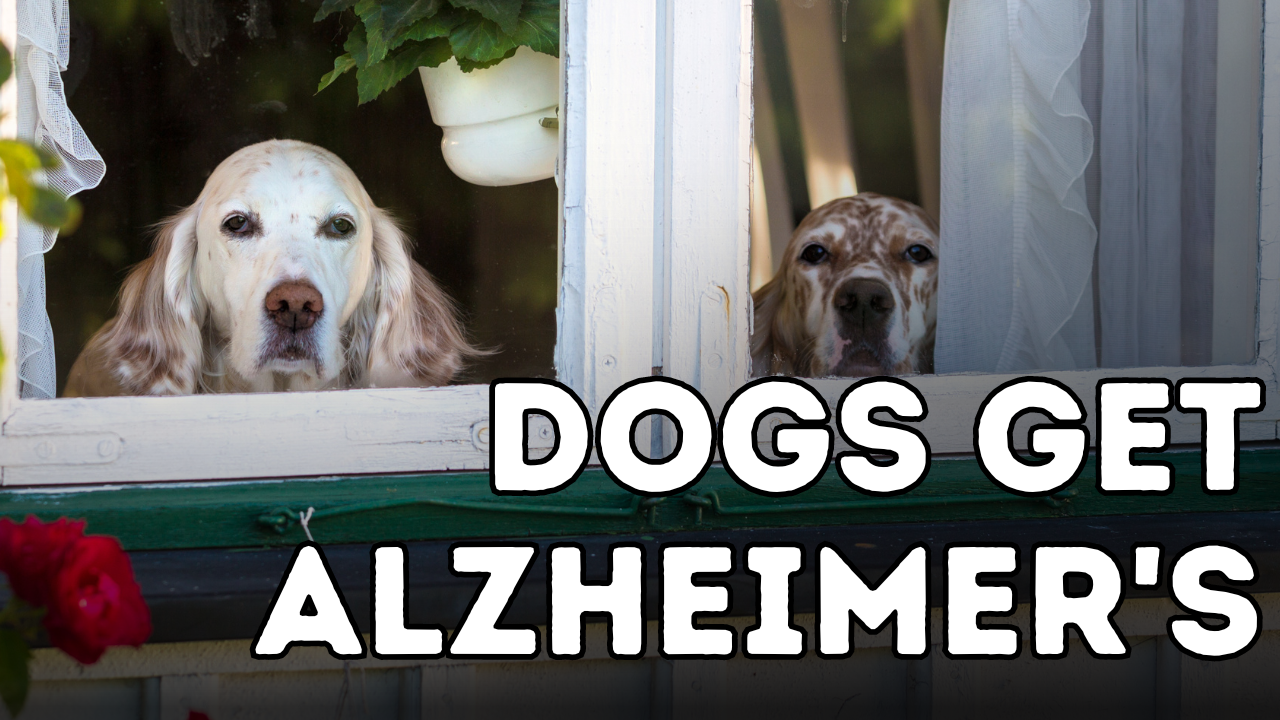Alzheimer’s in Pets: Early Signs and Effective Management Techniques

Unfortunately our dogs and cats do get Alzheimer like conditions. In veterinary medicine we call it ‘cognitive dysfunction’. The brain is an organ that ages, and when the cells of the brain are affected, the brain doesn’t work as well.
Problems thinking and remembering?
It happens to all of us to some degree, BUT there are supplements that have been shown to help delay cognitive decline.
Natural antioxidants like omega-3 fatty acids, and astaxanthin can help protect the brain.
Dr Jones’ ULTIMATE Omega 3 Formula may help, and it is found by clicking the link here!



As a practicing veterinarian, I’ve seen firsthand how cognitive dysfunction can affect our aging pets, mirroring Alzheimer’s disease in humans. Dogs and cats accumulate beta-amyloid deposits—a protein plaque—in their brains as they age. This can lead to symptoms quite similar to those observed in people with Alzheimer’s.
Identifying the Signs of Cognitive Dysfunction
Your pet might display changes in behavior as they grow older. Here are the common signs I notice in my patients:
- Increased sleep and reduced playtime.
- Physical signs of aging, such as a graying muzzle, reduced hearing, and vision impairment, sometimes accompanied by cataracts.
- Behavioral changes including pacing, excessive panting, and barking at walls.
Additional symptoms may include:
- Confusion and apparent disorientation.
- Loss of training, such as forgetting house training.
- Inability to recognize familiar people or places.
- Diminished interest in surroundings or events.
- Changes in water consumption and urination habits.
- Variations in appetite.
- Unusual behaviors like staring at walls.
- Increased barking and decreased overall activity.
What Causes Cognitive Dysfunction?
Pets are generally considered senior when dogs reach the age of seven and cats around ten. As they age, natural changes occur in their organs:
- Eyes might develop cataracts.
- Bones in the middle ear can fuse, leading to hearing loss.
- Joints may lose cartilage, resulting in arthritis.
- Brain aging can lead to signs of senility.
Several factors can contribute to cognitive decline:
- Long-term use of barbiturates, such as Phenobarbital for epilepsy.
- Valium and related drugs.
- Exposure to gas anesthetics.
- Medications that increase heart rate during anesthesia (anticholinergics).
- Chemotherapy drugs.
- Steroids like prednisone.
Strategies for Managing and Treating Cognitive Dysfunction
Behavioral and Environmental Modifications
Managing cognitive dysfunction involves adjustments in both behavior and environment. Enhancing your pet’s diet and using certain medications can also be beneficial. The dual goals are to slow the progression of the disease and improve the quality of life for both pets and their owners.
- Engage your pet in daytime activities and provide opportunities for structured social interactions.
- Expose your pet to sunlight to help regulate their sleep-wake cycle. If mobility is an issue, consider using a wagon or stroller.
- Maintain a predictable environment, much like you would baby-proof a house, to make navigation easier for your pet.
- Ensure there are ample toileting opportunities, and consider using diapers, pads, or waterproof covers for beds and furniture.
Supplements and Natural Options
Antioxidants
Antioxidants like Taurine, Flavonoids, Coenzyme Q, and Astaxanthin can be crucial in combating free radical damage in the brain. I recommend a diet rich in these antioxidants and supplementing with specific doses, such as 20mg of CoQ 10 per 10lbs daily.
Alpha-Lipoic Acid
This powerful antioxidant helps convert sugar into energy and protects against free radical damage. It works in both water and fatty tissues, making it highly effective. The recommended dose is 10mg per 10lbs daily.
Flavonoids
These compounds, found in brightly colored fruits and vegetables, have antioxidant and anti-cancer properties. A mixed bioflavonoid product containing polyphenols, especially EGCG from green tea, can be beneficial. For a 10 lb pet, 250 mg daily is a good start.
Melatonin
Often used for older pets with sleep issues, melatonin not only helps with sleep but also enhances mitochondrial efficiency. The dose is generally 1mg per 10lbs up to 6mg, given an hour before bedtime on an empty stomach.
Curcumin
The active ingredient in turmeric, curcumin has shown promise in reducing chronic inflammation and is effective in managing symptoms similar to Alzheimer’s in humans. The dose for pets is typically 100mg per 10lbs daily, with our bioavailable formula dosed at 250mg per 50lbs.
MCT Oil and CBD Oil
A diet enriched with 6.5% MCT oil has shown significant improvements in pets with cognitive dysfunction. For CBD oil, which can help alleviate symptoms of dementia, the starting dose is 1mg/10lbs twice daily.
Omega 3 Fatty Acids
These essential fats are vital for brain health and can significantly reduce cognitive decline. They have strong anti-inflammatory properties and support healthy brain function.

Consider trying our Ultimate Omega-3 Formula and our high-absorption Curcumin supplements available at Dr. Jones’ Natural Pet.
